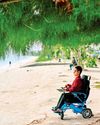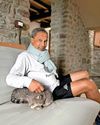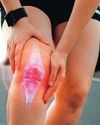
The year 2025 marks a decade of Prime Minister Narendra Modi's transformative engagement with the United Arab Emirates, solidifying bilateral ties as one of India's most strategic global partnerships in the 21st century. The UAE is now India's third-largest trading partner, with collaboration growing across diverse sectors, including defence, education, sustainability, culture and technology. The evolving nature of this relationship was underscored by the UAE Minister of State for International Cooperation, Reem Al-Hashimy, who recently visited New Delhi as part of an official delegation led by the UAE Deputy Prime Minister and Minister of Foreign Affairs, Sheikh Abdullah bin Zayed AI Nahyan. The delegation was in India for the fourth Strategic Dialogue and the 15th Joint Commission meeting between the two nations.
In an exclusive interview with THE WEEK at the Taj Mahal Hotel in Delhi, Al-Hashimy discussed the strong foundation of India-UAE relations and the vast potential for further growth. She also spoke of the deep-rooted people-to-people connections that have been integral to strengthening the partnership, reflecting on her own family's ties to India. Her father, a former footballer, received medical treatment in India, and her mother remembers enjoying shopping in Mumbai. The doctors who attend to her three sons are also from India. Al-Hashimy emphasised that such personal connections have played a significant role in fostering closer bilateral ties. In her view, the India-UAE partnership has never been stronger or more promising.
Edited excerpts:
Q/This is your fourth trip to India this year (2024), this time with Sheikh Abdullah bin Zayed AI Nahyan, deputy prime minister and foreign minister of the UAE. Obviously, India is a very important partner for you. As these frequent trips show, there must be something brewing in bilateral ties.
This story is from the January 05, 2025 edition of THE WEEK India.
Start your 7-day Magzter GOLD free trial to access thousands of curated premium stories, and 9,000+ magazines and newspapers.
Already a subscriber ? Sign In
This story is from the January 05, 2025 edition of THE WEEK India.
Start your 7-day Magzter GOLD free trial to access thousands of curated premium stories, and 9,000+ magazines and newspapers.
Already a subscriber? Sign In

Walking in pine forest can have the same effect as a prescription drug
INTERVIEW - KATHY WILLIS, professor of biodiversity, the University of Oxford, and author, Good Nature

MORE THAN A HELPING HAND
Maria Victoria Juan spent a lifetime healing wounded soldiers, and she can't think of anything she could have done better

Against all odds
Mohamed Raishan Ahmed was born with spinal muscular atrophy, which made him unable to sit, stand or walk. Recently, the Maldivian underwent a rare, complex surgery in India that now allows him to sit upright. At 23, the fact that he is alive is in itself an achievement. But he has gone beyond mere survival-with a pursuit of excellence

A pacemaker tale
From science fiction to reality, with a touch of southern Indian wisdom

Driving safe
Taxi drivers endure gruelling hours, cramped seats and relentless traffic, making them prime candidates for health issues like back pain, hypertension, diabetes and insomnia.

Good food, good life
From the moment of birth, we establish a relationship with food—a nourishing link that requires care and attention to stay healthy

POOR SLEEP IN MIDLIFE COULD AGE YOUR BRAIN FASTER
PEOPLE WHO EXPERIENCE SLEEP ISSUES, such as difficulty falling asleep or staying asleep in their 40s, may show more signs of brain ageing in late midlife. Poor sleep may accelerate brain atrophy that is associated with dementia.

BRAIN SCANS SHOW MINDFULNESS MEDITATION CAN REDUCE PAIN
CAN MINDFULNESS MEDITATION actually relieve pain, or is it just a placebo effect?

NON-SURGICAL OPTION TO EASE KNEE ARTHRITIS
A NEW, MINIMALLY INVASIVE procedure called genicular artery embolisation (GAE) can effectively reduce pain, improve quality of life and reduce progression of the disease and the need for knee replacement surgery in people with knee osteoarthritis.

EARLY ONSET DIABETES, BELLY FAT LINKED TO DEMENTIA
FACTORS SUCH AS DIABETES and belly fat in midlife can put you at risk of dementia and Alzheimer's disease later in life.